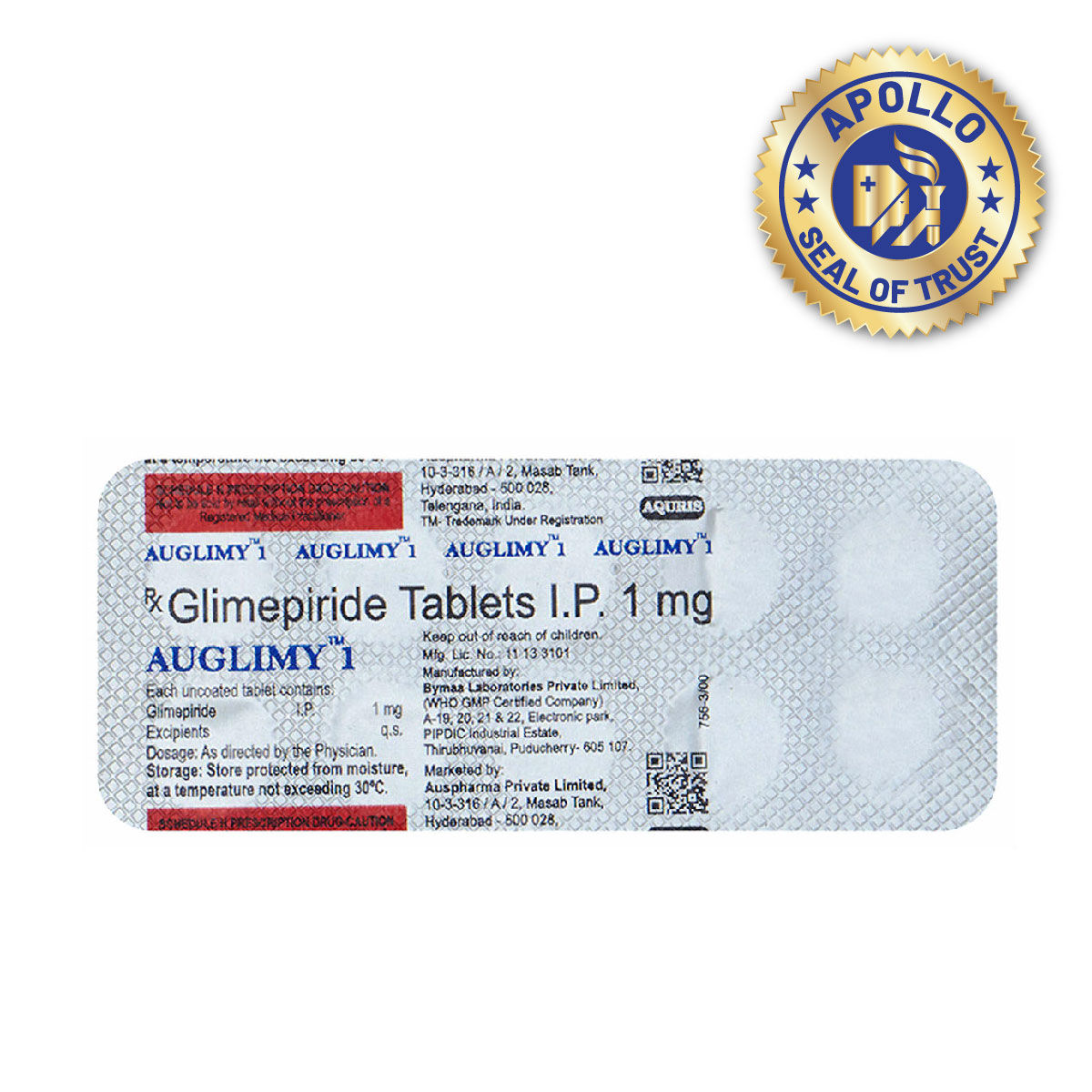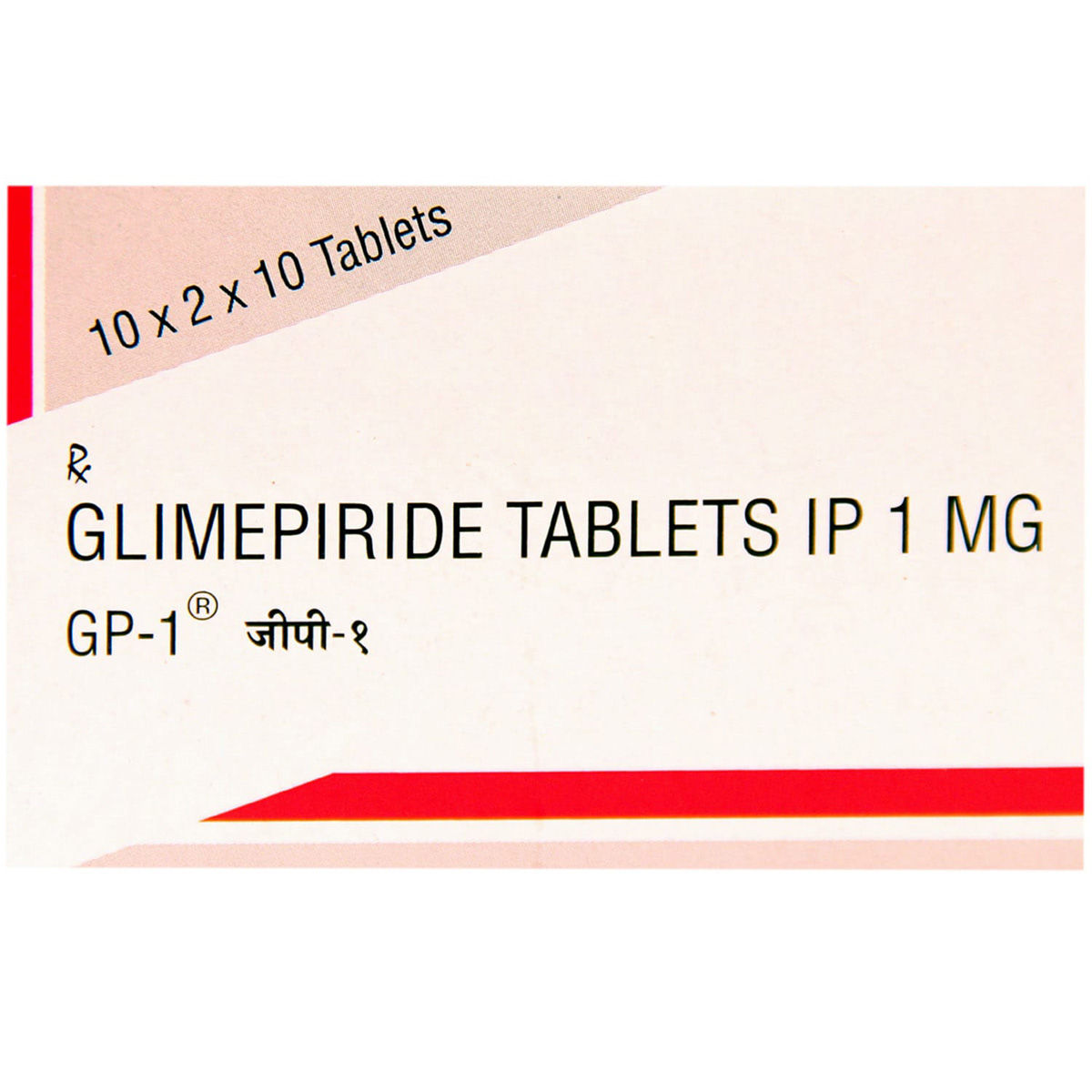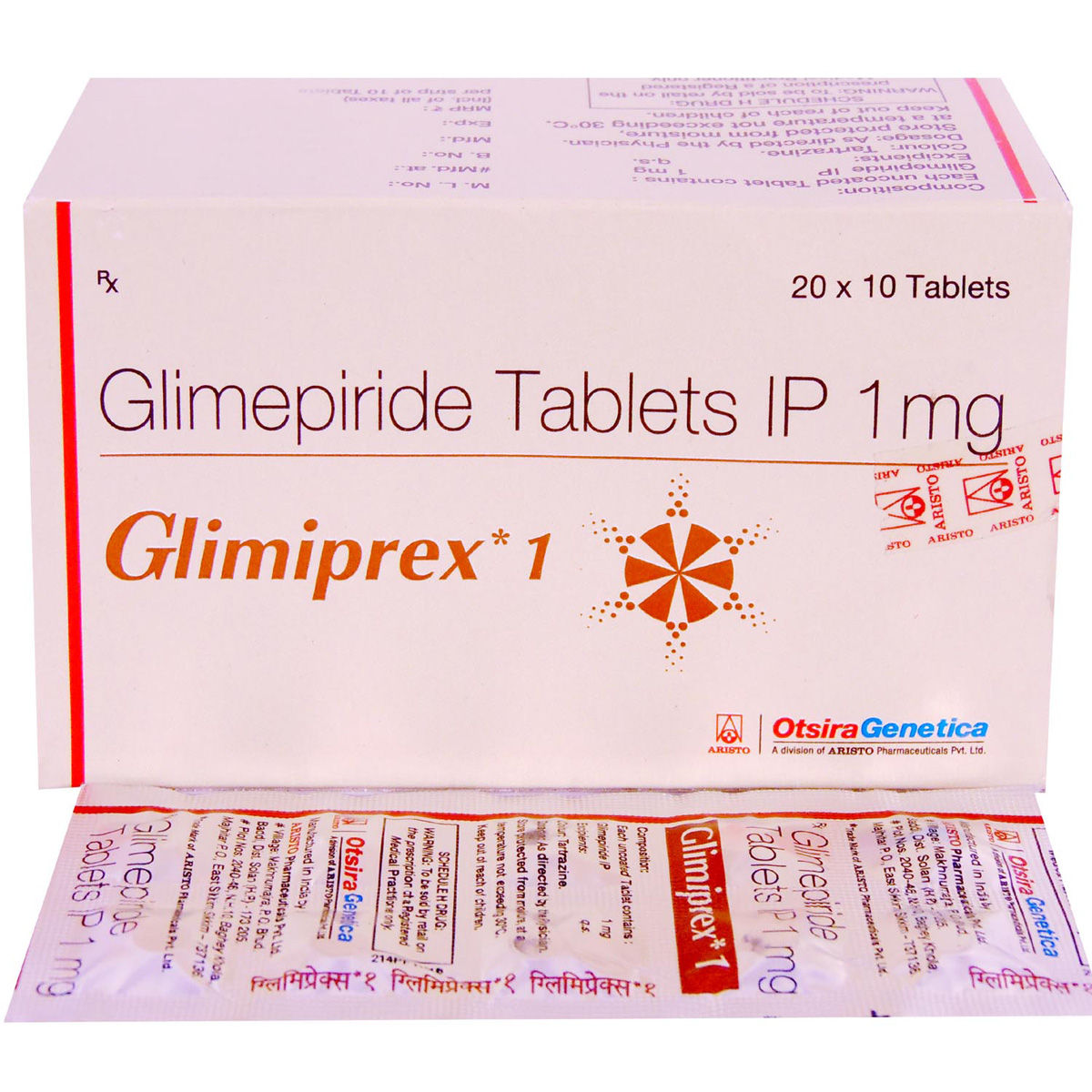Glimecheck 1 Tablet 10's
₹33.75*
MRP ₹37.5
10% off
₹31.87*
MRP ₹37.5
15% CB
₹5.63 cashback(15%)
Free Delivery
With Circle membership
(Inclusive of all Taxes)
This offer price is valid on orders above ₹800. Apply coupon PHARMA10/PHARMA18 (excluding restricted items)
Know Your Delivery Time
Provide Delivery Location

Whats That

Secure Payment

India's Most Trusted Pharmacy

Genuine Products
Composition :
Manufacturer/Marketer :
Consume Type :
Return Policy :
Expires on or after :
About Glimecheck 1 Tablet
Glimecheck 1 Tablet belongs to a class of antidiabetic called 'sulfonylureas' used to lower raised blood sugar levels in Type 2 diabetes mellitus (non-insulin-dependent diabetes mellitus - NIDDM). Type 2 diabetes develops if the body does not produce enough insulin or when your body's insulin does not work as well as it should. Insulin is a substance that helps to lower the level of sugar in your blood, especially after meals.
The Glimecheck 1 Tablet contains Glimepiride which acts on insulin-secreting cells called beta cells inside the pancreas and activates calcium channels on cells which lets insulin pass out of the cell. This insulin then makes each cell in the body take up glucose and utilize it, thus lowering raised blood glucose. Therefore, it prevents symptoms of type 2 diabetes.
Take Glimecheck 1 Tablet as prescribed by your doctor. Some people may experience an allergic reaction (skin rash, hives & sensitivity to sun rays), liver dysfunction (jaundice, bile duct blockage, and hepatitis), seizures, coma & low glucose levels. Most of these side effects of Glimecheck 1 Tablet do not require medical attention and gradually resolve over time. However, if the side effects persist or worsen, please consult your doctor.
Glimecheck 1 Tablet should not be stopped even if you feel better without consulting your doctor as the sugar level keeps changing. If you stop taking Glimecheck 1 Tablet abruptly, it may increase your sugar levels which could further increase the risk of eyesight loss (retinopathy), kidney (nephropathy) and nerve damage (neuropathy). Glimecheck 1 Tablet should not be taken if you have type 1 diabetes mellitus or severe kidney or liver disease. Please inform your doctor if you have any heart disease or plan to get pregnant or breastfeed.
Uses of Glimecheck 1 Tablet
Medicinal Benefits
Glimecheck 1 Tablet is used in people with type 2 diabetes to minimize elevated blood sugar levels with a balanced diet and exercise in combination. Glimecheck 1 Tablet can be combined with insulin or other forms of oral antidiabetic medication. Glimecheck 1 Tablet decreases blood sugar levels in a diabetic patient by increasing the production and secretion of insulin from the pancreas beta cells. Thus, it helps in controlling increased blood sugar levels after the meal.
Side Effects of Glimecheck 1 Tablet
Allergic reactions
Headache
Nausea
Blood pressure drop
Shock
Abnormal liver function
Including skin and eye yellowing (jaundice)
Bile flow issues (cholestasis)
Liver inflammation (hepatitis) or failure of the liver
Directions for Use
Storage
Drug Warnings
Before taking Glimecheck 1 Tablet , inform your doctor if you are healing from injury, had or going to have surgery, have fever infections or other sources of stress, then contact your doctor as it might be appropriate to adjust care temporarily. If you have a serious kidney/liver disease, breastfeeding or pregnant, consult the doctor before using Glimecheck 1 Tablet . Do not take Glimecheck 1 Tablet if you are allergic to sulpha drugs, glimepiride, or any other antidiabetic medicines or have a deficiency of glucose 6-phosphate dehydrogenase (G6PD). A heart disease patient should consult a doctor before taking the Glimecheck 1 Tablet as it may worsen the heart disease's current conditions. Do not take Glimecheck 1 Tablet with oral contraceptives as it may increase blood sugar levels. On the other hand, taking Glimecheck 1 Tablet with pain killers like aspirin or ibuprofen can lower your blood sugar.
Therapeutic Class
Drug-Drug Interactions
Drug-Food Interactions
Diet & Lifestyle Advise
Do regular exercise such as cycling, walking, jogging, dancing or swimming for a minimum of 30 minutes per day. Invest at least 150 minutes of your week in exercise.
Maintain healthy body weight as obesity is also related to the onset of diabetes.
Maintain a low fat and a low sugar diet. Replace carbohydrates containing foods with whole grains, fruits and vegetables as carbohydrates turn to sugars leading to high blood sugar.
Avoid consumption of alcohol and quit smoking.
Habit Forming
How Glimecheck 1 Tablet Works
What if I have taken an overdose of Glimecheck 1 Tablet
Alcohol
Caution
Not recommended to take Glimecheck 1 Tablet with alcohol. Alcohol intake may increase or decrease the blood sugar lowering action of Glimecheck 1 Tablet in an unpredictable way resulting in a harmful event.
Pregnancy
Caution
Glimecheck 1 Tablet is a pregnancy Category C medicine which means that there are no well-controlled studies that have been done in pregnant women. However, if you are taking Glimecheck 1 Tablet during pregnancy, stop taking it at least 2 weeks before your due date or as prescribed by your doctor.
Breast Feeding
Caution
Not recommended to be taken by breastfeeding mothers. Glimecheck 1 Tablet may pass into breast milk and may cause the risk of low blood sugar in the infant. Consult your doctor for further advice.
Driving
Caution
Not recommended in patients with fluctuating glucose levels. Glimecheck 1 Tablet can reduce the ability to concentrate or react, if your blood sugar is lowered (hypoglycemia) or raised (hyperglycemia) or if you develop visual problems as a result of such conditions. Thus not recommended as the patient can endanger himself or others (e.g. when driving a car or using machines).
Liver
Caution
Not recommended in patients with liver dysfunction. A patient should consult a doctor before taking Glimecheck 1 Tablet as it may cause liver damage.
Kidney
Caution
Not recommended in patients with kidney dysfunction. A patient should consult a doctor before taking Glimecheck 1 Tablet as it may cause kidney damage.
Children
Unsafe
Glimecheck 1 Tablet is not approved for use by a person less than 18 years old.
Country of origin
Manufacturer/Marketer address
Author Details
We provide you with authentic, trustworthy and relevant information
Glimecheck 1 Tablet Substitute

Auglimy 1 Tablet 10's
₹3.60per tabletAb-Glymprd 1 Tablet 10's
₹4.10per tabletAmaryl 1 mg Tablet 30's
₹3.72per tabletGp-1 Tablet 10's
₹3.69per tabletZoryl-1 Tablet 15's
₹3.72per tablet
FAQs
Disclaimer
Product Substitutes























